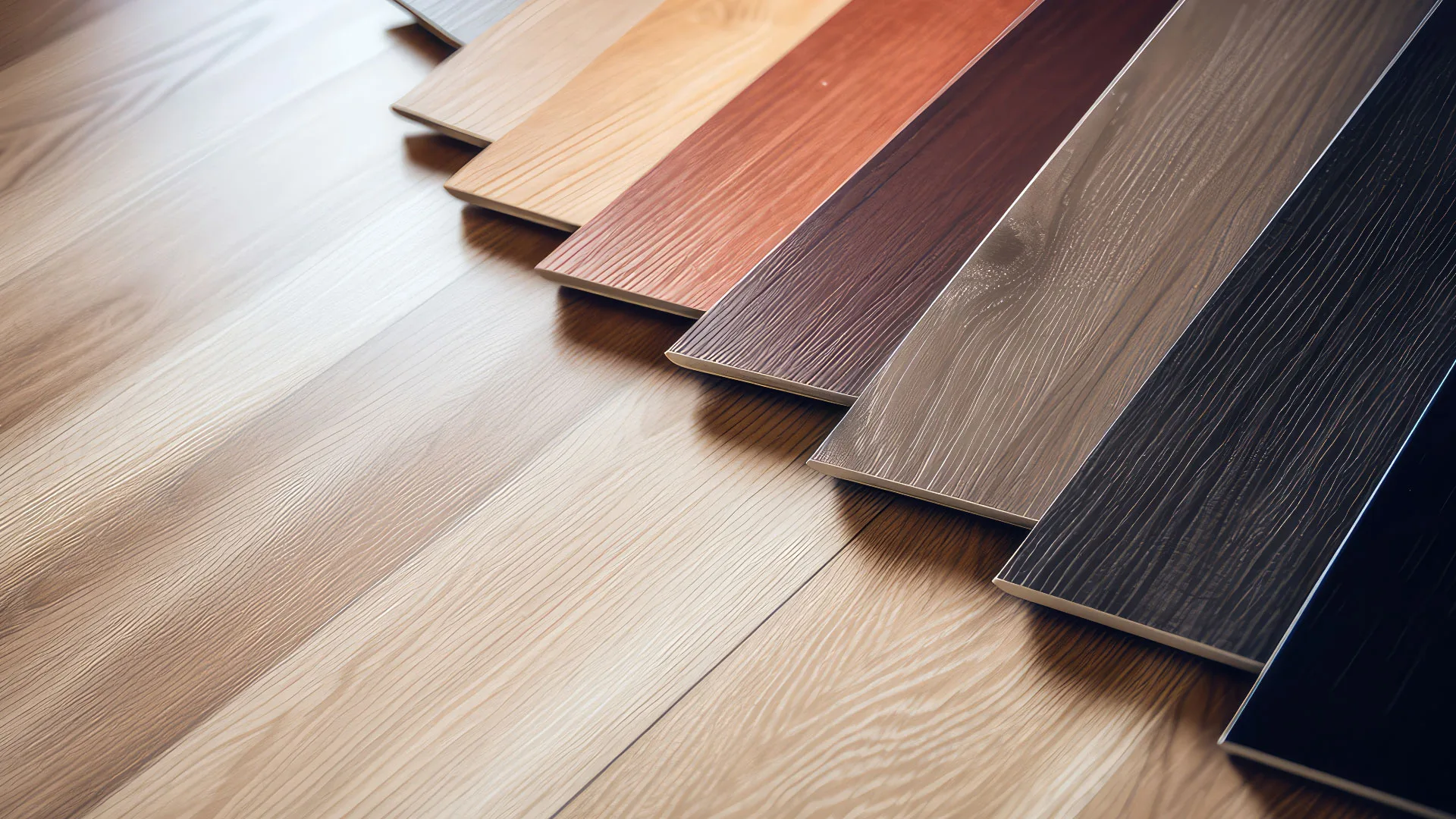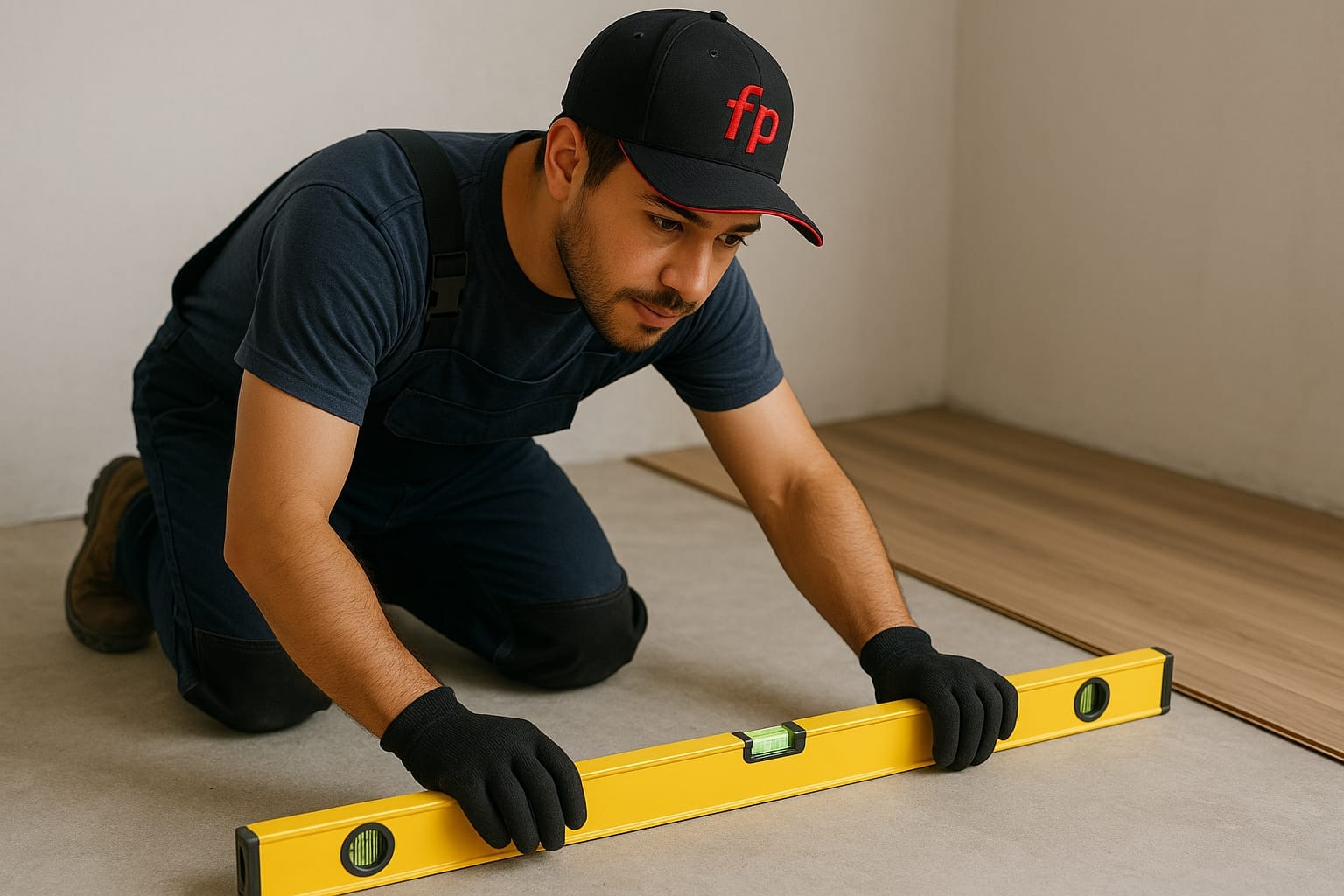
Vinyl flooring is waterproof mainly, making it ideal for moisture-prone areas. Its water-resistant properties stem from its PVC construction.
Discovering the perfect flooring solution for spaces exposed to water and humidity can be challenging. Vinyl flooring is an excellent choice due to its strong moisture resistance. Made primarily from polyvinyl chloride (PVC), this flooring type repels water, ensuring that spills and splashes don’t seep through and cause damage.
Homeowners often prefer vinyl flooring in their bathrooms, kitchens, and basements for its durability and low maintenance. Its ability to withstand the rigors of high-moisture environments makes it a practical and stylish option for modern homes. With various designs and textures available, vinyl flooring offers both functionality and aesthetic appeal, meeting consumers’ diverse needs and preferences.
Understanding vinyl flooring’s composition is crucial in recognizing its waterproof capabilities. Because of its unique build, vinyl flooring is a popular choice for areas prone to moisture. Let’s explore the materials and layers that make vinyl flooring a waterproof marvel.
Vinyl flooring consists of materials that resist water. These include:
Each layer of vinyl flooring has a unique role. Together, they create a waterproof surface. Here are the layers:
| Layer | Function |
|---|---|
| Wear Layer | Protects against scratches and stains. |
| Print Layer | Provides the design and color. |
| Core Layer | Adds durability and is the main waterproof component. |
| Backing Layer | Resists moisture and molds. |
Exploring the Types of Vinyl Flooring helps you choose the right fit for your space. Each type offers unique benefits, including varying degrees of water resistance.
Sheet vinyl flooring stands out for its seamless installation. This type comes in large, continuous pieces, making it highly water-resistant. It’s an excellent choice for areas where moisture is common in kitchens and bathrooms. The absence of seams means water can’t easily seep through, offering better protection against spills.
Luxury Vinyl Tiles (LVT) are known for their realistic designs. They mimic materials like hardwood and stone. LVT consists of multiple layers, including a waterproof core, making it a durable option for both commercial and residential areas. They come in various sizes and can be easily replaced if damaged.
Understanding the difference between water-resistant and waterproof vinyl is crucial. Water-resistant vinyl can handle spills that are wiped away quickly. On the other hand, waterproof vinyl can withstand moisture for extended periods without damage. Here’s a simple comparison:
| Feature | Water-Resistant Vinyl | Waterproof Vinyl |
|---|---|---|
| Spill Response Time | Short-term resistance | Long-term exposure |
| Installation Area | Low-moisture zones | High-moisture areas like bathrooms |
| Material Composition | Usually has a top protective layer | Includes a waterproof core layer |
Choose waterproof vinyl for rooms exposed to more moisture. It ensures a longer-lasting floor without the worry of water damage.
The mechanics of water resistance in vinyl flooring are central to its durability. This robust flooring option stands up against spills and splashes, making it a favorite for kitchens, bathrooms, and other moisture-prone areas. Understanding how vinyl manages this feat reveals why it’s a practical choice for many homes.
Vinyl flooring has a water-repellent surface that prevents water from penetrating and causing damage. The materials used in vinyl flooring include PVC, which naturally resists water. Vinyl’s design features multiple layers, each contributing to its waterproof nature. The top layer, known as the wear layer, is particularly crucial. It acts as a barrier against moisture and wear.
While vinyl planks or tiles are individually water-resistant, the seams between them can be vulnerable. Water can seep through these gaps and reach the subfloor, potentially causing damage. Proper installation is critical to minimizing this risk. Installers should ensure that seams are tight and secure. Some vinyl flooring options offer interlocking edges that create a more seamless and less porous surface.
| Installation Factor | Impact on Water Resistance |
|---|---|
| Tight Seams | Prevents water seepage |
| Interlocking Design | Improves seam impermeability |
Ensuring the flooring is appropriately measured, cut, and installed will enhance water resistance. Regular maintenance and immediate cleanup of spills will help preserve the integrity of the seams over time.
Waterproof vinyl flooring has revolutionized home flooring. Perfect for every room, it combats spills and splashes with ease. Modern homes embrace this durable, stylish option, which keeps floors looking new no matter the mess.
The world of vinyl flooring is constantly evolving. New technology has made vinyl 100% waterproof—the secret lies in a layered structure that works together to lock out moisture.
Innovative techniques also bring realistic textures. These floors mimic natural materials like wood and stone.
Many brands offer waterproof vinyl flooring. Each brand has unique features and styles.
| Brand | Collection | Key Feature |
|---|---|---|
| Lifeproof | Essential Oak | Scratch-resistant |
| Shaw | Floorte | Antimicrobial |
| Armstrong | Pryzm | Realistic visuals |
Choose the right brand for your home. Consider your lifestyle and decor preferences. Waterproof options ensure long-lasting beauty for your floors.
Understanding a flooring’s durability is key when picking out new flooring. This is especially true for vinyl flooring, a popular choice for its look and resilience. But is it truly waterproof? Let’s put vinyl to the test and discover how well it holds up against water.
Experts use specific methods to test vinyl flooring for water resistance. These tests mimic real-life scenarios where water exposure might occur. Labs use machines that apply water to the flooring for set periods. They check for any changes in texture, color, and form. These tests’ results clearly show how vinyl stands up to moisture over time.
You don’t need a lab to test vinyl’s water resistance. Simple DIY tests can give you an idea of how it performs. Use a few tools, such as water, towels, and weights, to simulate spills and standing water. Note changes to your vinyl after these tests to assess its waterproof capabilities.
Keep in mind that the results might not be as precise as professional testing, but they can still be very telling. If the vinyl flooring shows no damage or warping, it’s a good sign of water resistance.
Exploring the flooring world brings us to waterproof vinyl, a popular choice for modern homes. Before making a decision, it’s vital to weigh the pros and cons of this material. Here’s a closer look at the advantages and disadvantages.
Waterproof vinyl flooring excels in areas prone to spills and moisture. Its water-resistant nature makes it ideal for bathrooms, kitchens, and basements. Below are the key benefits:
While waterproof vinyl flooring offers significant benefits, it’s essential to consider potential downsides:
| Drawback | Details |
|---|---|
| Sensitivity to temperature: | Extreme cold or heat can cause vinyl to expand or contract. |
| Hard to remove: | Once installed, vinyl flooring can be difficult to take up. |
| Eco-friendliness: | Vinyl is not biodegradable and can be challenging to recycle. |
| Subfloor preparation: | A smooth subfloor is required to avoid imperfections. |
In summary, waterproof vinyl flooring offers excellent protection against moisture with a robust lifespan. However, installation and environmental concerns should be considered. Choose wisely for a floor that not only matches your lifestyle but also gives you the confidence of its durability and waterproofing.
Installation Considerations are critical in ensuring your vinyl flooring lives up to its waterproof reputation. Understanding the nuances of its installation is paramount to maximizing its benefits. This section delves into the key aspects that contribute to a successful waterproof flooring experience.
Ensuring a watertight seal starts with proper installation techniques. Here’s what you need to know:
Stay vigilant and avoid common installation errors. Being aware of these pitfalls will help you ensure a flawless installation of your waterproof vinyl flooring:
| Error | Consequence |
|---|---|
| Ignoring manufacturer’s instructions | May lead to poor performance and voided warranties. |
| Insufficient sealing | Increases risk of water damage and mold growth. |
| Not acclimating the flooring | Can cause warping or gaps due to temperature changes. |
| Overlooking subfloor imperfections | Results in an uneven surface, affecting waterproofing. |

Vinyl flooring combines durability with easy upkeep, making it a popular choice for busy homes. Proper maintenance ensures it continues to look fresh and function well for years. Explore the simple care routines that keep vinyl flooring waterproof and in top condition.
Keeping vinyl floors clean is straightforward:
Remember to use cleaners recommended for vinyl to prevent damage. This ensures the waterproof seal remains intact.
Immediate action is crucial when spills occur:
For leaks, especially in areas like the kitchen, make sure to:
Properly addressing spills and leaks will keep your vinyl flooring safe and waterproof.
Exploring how vinyl flooring stands up to water in daily use is eye-opening. This flooring type proves highly practical in homes and commercial spaces. Let’s dive into specific applications.
Vinyl flooring shines in homes due to its water resistance. It’s perfect in areas prone to spills and moisture.
Vinyl flooring offers a durable and easy-to-clean surface for families with kids and pets.
Vinyl flooring excels in various business environments due to its durability and low maintenance.
| Setting | Benefits |
|---|---|
| Hospitals | Hygienic, easy to sanitize, handles heavy foot traffic. |
| Schools | Withstands spills, frequent cleaning, and heavy use. |
| Retail Stores | Looks good, withstands high customer traffic. |
These environments benefit significantly from vinyl flooring’s ability to resist water and heavy use.

Are you thinking about new floors for your home? Vinyl is popular because it’s waterproof. But other choices can work well, too. Let’s explore some vinyl alternatives.
Waterproof floors are great for homes. They resist spills and stains. Here are some options:
Understanding the costs and longevity of different flooring options is crucial in making an informed decision. Let’s compare these factors using the following tableLet’s:
| Flooring Type | Cost | Longevity |
|---|---|---|
| Vinyl | Low to medium | 10-20 years |
| Tile | Medium to high | 20-50 years |
| Laminate | Low to medium | 15-25 years |
| Rubber | Medium | 20+ years |
| Concrete | Varies | 50+ years |
Tile lasts the longest but costs more. Vinyl is cheaper, and concrete is very tough. You can choose what best fits your budget and style.
Embarking on a home renovation journey requires careful consideration, especially when selecting the correct type of flooring. Vinyl flooring stands out for its durability and style. But is it waterproof? Understanding the details helps make an informed decision.
Several key factors impact the choice of flooring:
Seeking advice from experts can clarify doubts and provide tailored solutions. Professionals can offer insights on:
Engage with certified installers or visit a flooring showroom for samples and a hands-on understanding of vinyl flooring’s waterproof features.
Vinyl flooring is water-resistant, so exposure to water won’t immediately damage it. However, prolonged moisture can lead to mold growth and potentially warp the material. Ensure spills are quickly cleaned to prevent any issues.
Vinyl flooring can emit volatile organic compounds (VOCs), is susceptible to scratches and dents, and may fade with UV exposure. Its non-biodegradable nature also poses environmental concerns.
Yes, vinyl flooring is fully waterproof, making it ideal for areas prone to moisture, like bathrooms and kitchens.
Vinyl flooring is more waterproof than laminate. Vinyl’s composition makes it ideal for areas with high moisture exposure.
Wrapping up our discussion on vinyl flooring’s water resistance, it’s clear that this material offers robust protection against moisture. Ideal for bustling households and high-splash zones, vinyl stands as a savvy choice for damp-prone areas. Proper installation and maintenance are crucial to ensuring its longevity and waterproof capabilities. Choose wisely to keep your spaces stylish and dry.




For flooring Augusta GA, choose Flooring Pros. We provide affordable flooring and professional installation for any budget.
© Flooring Pros Of Augusta 2025 All Rights Reserved |